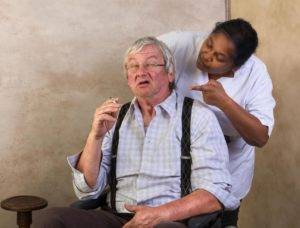Elder abuse is a common problem seen in homes and care giving facilities such as hospitals and nursing homes. Elder abuse can take different forms such as physical abuse, sexual abuse, financial abuse and exploitation, emotional abuse, neglect or abandonment by the caregivers, as well as healthcare fraud and abuse. Since older people are vulnerable, they easily become victims of abuse and neglect. Elder abuse can be ugly and painful, and can result in increased medical costs. The problem with elderly abuse is that cases of elder abuse are highly underreported. According to an estimate, one in 10 older people experience some kind of abuse.
Who is at Risk of Elder Abuse?
Older women are generally more prone to cases of abuse and neglect, and they may suffer more physical and psychological damage. The older the individual, the higher their risk of getting abused. People who need help with their daily activities, such as while bathing, dressing, or using the bathroom, are considered among the at-risk group. Individuals who are socially isolated are also at an increased risk. Similarly, people who live with a mental illness, or any kind of mental impairment such as dementia, or those with cognitive problems, are at an increased risk of getting abused.
Who are the abusers in these cases?
Approximately 90% of elder abuse and neglect is carried out by someone very close to the victim. The abusers are usually family members, such as children or spouses. Care giving is not an easy job. Long-term care giving has its own stresses and problems. The job can also be extremely demanding and can be overwhelming at times. Care giving requires someone who is experienced and can do the job, but most of the time, an ill-equipped person may find themselves thrust into the role of a care giver.
Care giving can take a terrible toll on the physical and emotional health of the care giver as well. The caregiver may also experience emotional and physical illnesses, and they often don’t have the time and energy to look after their own health. Due to all these reasons, the caregiver might turn nasty or neglectful towards the elderly.
Nursing Home Abuse
Another sad scenario is of nursing home abuse. Although sexual abuse is one of the least common forms of elder abuse, it is often seen in nursing homes. Acts of violence, both sexually and verbally, are also seen by residents of nursing homes against each other.
Culture makes a difference
Culture also makes a huge difference in elder abuse cases. For example, cases of psychological abuse, disrespect, cursing, and ignoring, are considered worse than physical abuse in Chinese-American populations. In many Chinese older adults, elder abuse is associated with an increased risk of suicide by abuse victims. This increase in the suicide rate is due to a sense of shame and stigma. These elders would rather swallow a pill and die instead of going through a long and painful old age.
Getting help in elder abuse cases is important, not only to protect the rights of the elder but to get compensated for the neglect caused by the abuser. For legal assistance and guidance, get in touch with an elder abuse attorney.
Author Bio:
Ainley, Hoover & Hoover, PLLC is a full service law firm. Learn more about your legal options during an honest consultation in Paris, TN.
Samer Habbas, Esq
State Bar: #243683
Samer Habbas is a California attorney with over 15 years of experience in personal injury law. Throughout his career, he has successfully recovered over $300 million for his clients, solidifying his reputation as a leading advocate in the field.
Samer swiftly gained recognition for his adept negotiation skills and unwavering dedication to his clients. His practice spans a wide range of personal injury cases, including car accidents, dog bites, funeral home abuse, premises liability, and wrongful death.
Samer is known for his compassionate approach and commitment to securing favorable outcomes for his clients. His expertise has earned him the trust and respect of both his clients and his peers within the legal community. He is also deeply invested in giving back to his community. He actively participates in pro bono work and volunteers his time to various charitable organizations. Samer is a champion for those who have been wronged, leveraging his extensive experience and expertise to make a meaningful difference in the lives of his clients and his community.
Tags : abuse
Recent Post
-
April 15, 2024
-
April 12, 2024
-
April 9, 2024
-
April 8, 2024
-
April 8, 2024













